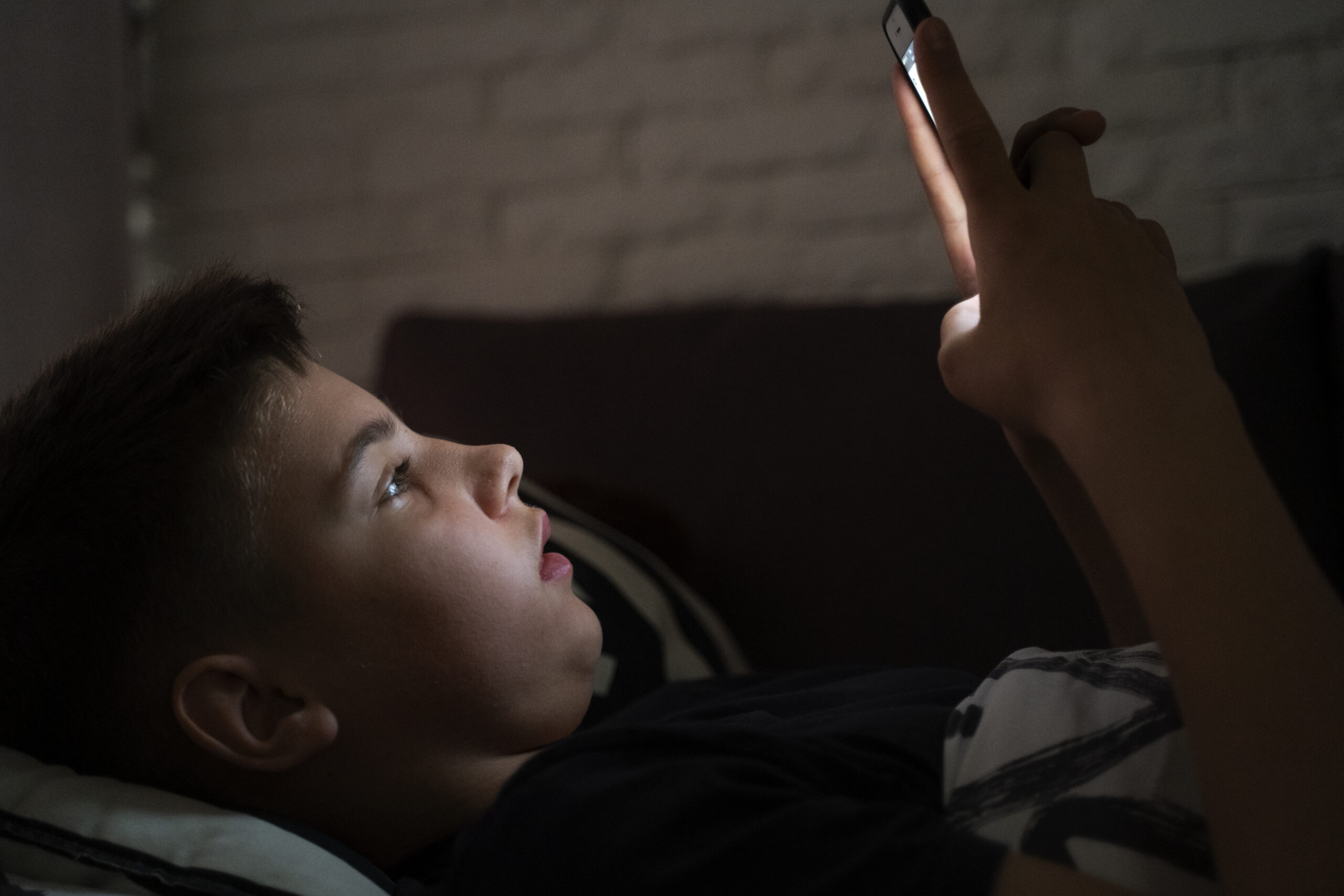FLOWOOD, Miss. (WLBT) – Mental health professionals are sounding the alarm over the growing crisis of screen addiction in children, linking it to a dramatic rise in emotional and behavioral issues. Children today are experiencing increased levels of anxiety, depression, and even aggression, and experts say smartphones and social media are playing a major role.
At the “Responding to an Anxious Generation” summit held at the Sheraton Hotel in Flowood, over 350 educators, mental health clinicians, and social workers gathered to find ways to help families navigate this digital dilemma. The event, hosted by Canopy Children’s Solutions, focused on providing tools to address what professionals now describe as a youth mental health crisis driven by screen addiction in children.
The Impact of Screen Addiction in Children on Mental Health
Throughout the summit, mental health experts highlighted the emotional toll of screen addiction in children. With constant exposure to devices from an early age, children are showing signs of tech dependency, emotional instability, and even violent outbursts when screen access is limited.
“I’ve seen my son push back just because I interrupted his screen time,” said Nakisha Henderson, a mental health therapist and mother of a 10-year-old. “Even as a professional, setting limits at home can still be a challenge.”
In one alarming case, Henderson described a five-year-old who became physically aggressive when a tablet was taken away—biting, scratching, and destroying the room. These behaviors are becoming increasingly common as more families face the realities of screen addiction in children.
What Experts Recommend to Manage Screen Addiction in Children
Dr. John Damon, CEO of Canopy Children’s Solutions, reported a 67% increase in service demand, largely driven by device-related emotional struggles in youth.
“Smartphones and apps are not just tools anymore—they’ve become companions for kids,” Dr. Damon explained. “If we don’t engage them and set healthy boundaries, we’ll see more rebellion. That’s the danger of unchecked screen addiction in children.”
To reduce these negative impacts, experts recommend parents and caregivers:
- Have open and regular conversations about screen use
- Establish consistent boundaries such as screen-free times or zones
- Remove devices at night and charge them outside the child’s bedroom
- Encourage real-world, social, and outdoor activities
- Monitor apps and sites to ensure safe and age-appropriate usage
Shea Hutchins, Canopy’s Chief Solutions Officer, stressed the need for structure. “This is not about punishment. Kids need a healthy digital diet—screen addiction in children must be addressed like any other health issue.”
Addressing the Broader Mental Health Effects
The summit made clear that limiting screen time is just one part of the solution. Screen addiction in children often contributes to deeper psychological issues like low self-esteem, attention problems, and depression. The constant comparison and validation-seeking common on social media platforms can further damage a child’s emotional development.
That’s why professionals are advocating for a holistic mental health approach. By identifying early warning signs, fostering resilience, and keeping communication open, families can protect their children’s emotional wellbeing and help them build healthier habits.
Final Thought
The “Anxious Generation” is growing up with more digital exposure than any generation before. Left unmanaged, screen addiction in children can disrupt their mental, emotional, and social development. However, with informed parenting, professional support, and practical tools, it’s possible to guide kids toward a balanced, healthier relationship with technology.
Frequently Asked Questions (FAQs)
Q: How does social media affect children’s mental health?
Excessive social media use is often a major part of screen addiction in children. It can lead to anxiety, depression, sleep disruption, and low self-esteem due to online comparison and cyberbullying.
Q: At what age should children get their first smartphone?
While it varies, many experts suggest waiting until age 13. By then, children may be better equipped to manage screen time responsibly. Introducing devices earlier increases the risk of screen addiction in children.
Q: How can I reduce my child’s screen time without causing conflict?
Start with small changes and explain your reasons. Make it a family practice to reduce screens together. Replacing screen time with fun, offline alternatives can help ease dependency.
Q: Are there apps to help monitor screen addiction in children?
Yes. Tools like Bark, Qustodio, Family Link, and Screen Time allow parents to track device usage, block harmful content, and enforce healthy time limits.
Q: What should I do if I suspect my child has a screen addiction?
Talk to a mental health professional. Behavioral therapy and family counseling can help. Also, gradually reduce usage while increasing offline engagement and connection.



